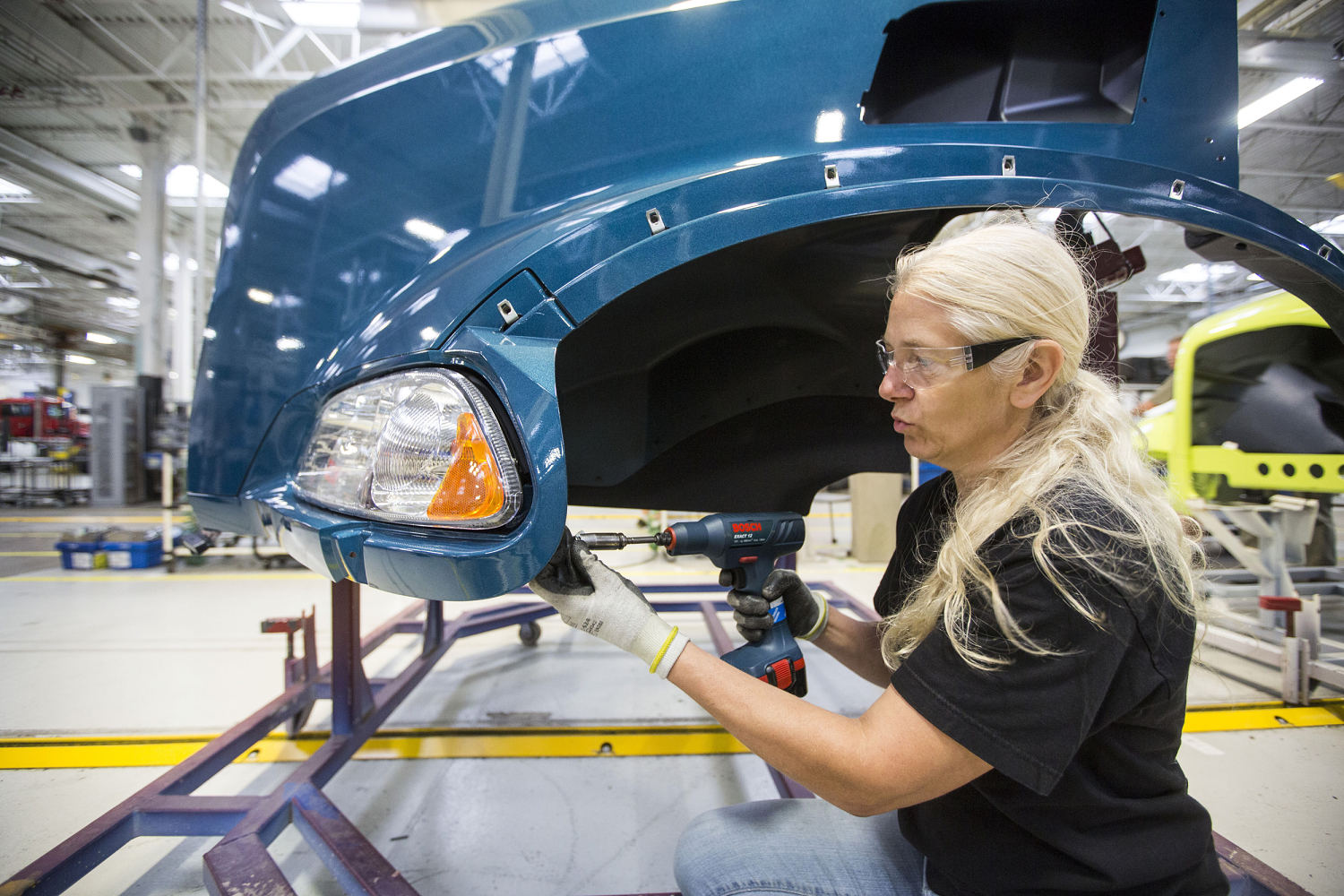[ad_1]

Workers at Mack Trucks have gone on strike Monday after rejecting a proposed contract between the company and the United Auto Workers union.
The union released a letter on X, formerly known as Twitter, that said 73% of UAW members voted against the contract and would walk off the job at 7 a.m. ET. About 4,000 UAW members work at Mack Trucks in three states.
UAW President Shawn Fain wrote in a letter addressed to the company that the two sides now need to settle issues include wage increases, cost of living allowances, job security and pensions.
“We are surprised and disappointed that the UAW has chosen to strike, which we feel is unnecessary,” Mack Trucks President Stephen Roy said in a news release.
Mack Trucks says terms of that deal included a 10% wage increase in the first year and a compounded 20% increase to pay over the course of the five-year agreement, with a guarantee of no increases in health insurance premiums.
Mack Trucks is owned by Volvo, so the new strike is separate from the UAW dispute with Detroit’s Big Three.
Since Sept. 15, about 25,000 workers have walked off the job in an escalating series of strikes against Ford, General Motors and Stellantis, which makes cars under brands such as Jeep, Dodge and Chrysler.
In its statement, Mack Trucks pointed to the UAW’s classification of the proposal as “a record contract for the heavy truck industry.”
The rejected agreement between the union and Mack Trucks may be a record, but it also falls short of the terms the UAW and the Big Three have discussed. The union is seeking a 40% pay increase for those members and says Ford, GM and Stellantis have all offered increases of around 20%.
In his statement, Roy suggested those kinds of increases were not realistic in the trucking industry.
“The UAW called our tentative agreement ‘a record contract for the Heavy Truck industry,’ and we trust that other stakeholders also appreciate that our market, business, and competitive set are very different from those of the passenger car makers,” he said.
[ad_2]
Source link
